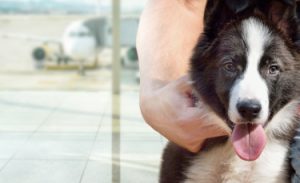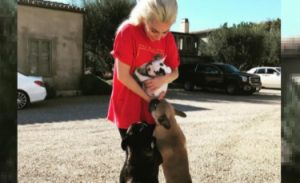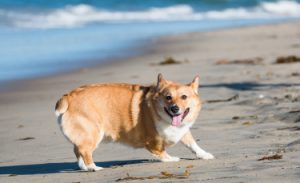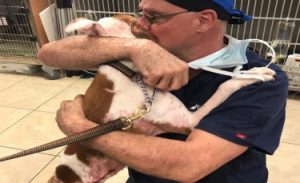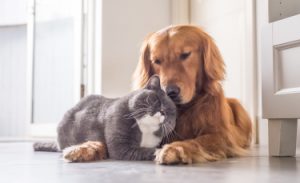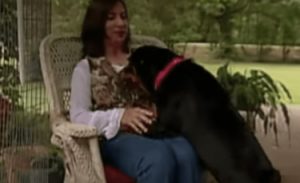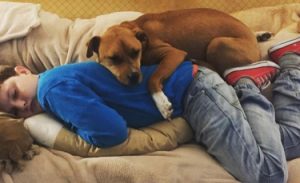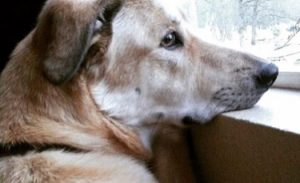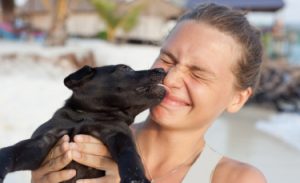Other name: Labrador Doodle
Also called Labrapoodle, the Labradoodle is the result of the cross between the Labrador Retriever and the Poodle. The term was also formed by contracting their respective names, the Poodle being called Poodle in English. A versatile dog, the Labradoodle inherits the qualities of both breeds. It is not recognized by the FCI, nor by the other major associations. There are 3 sizes of Labradoodles: miniature, medium and standard, with a weight that can range from 7 to 30 kilograms. These dogs are also classified according to their proximity to the original Labrador and Poodle. Thus, a Labradoodle F1 is the direct result of the reproduction of representatives of the 2 breeds. An F2 comes from the reproduction of 2 F1 dogs, and the F3 comes from the crossing of 2 F2 dogs.
<!–
–>
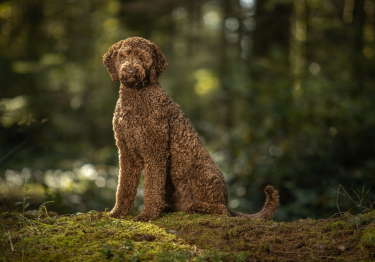
Hypoallergenic breed
| Long, Medium-length, Straight, Curly, Curly | |
| Australia | |
| Average | |
| Square |
| Sex | Weight | Cut |
|---|---|---|
| Female | From 6 kg to 25 kg | From 35 cm to 60 cm |
| Male | From 7 kg to 30 kg | From 38 cm to 61 cm |
History of the breed
The Labradoodle was born from the desire to create a guide dog with the temperament of the Labrador-Retriever and the hypoallergenic character of the Poodle.
The origins of the breed are located in Australia. In the mid-1970s, a blind Hawaiian woman contacted the Australian Guide Dog Association to request a guide dog that did not cause an allergic reaction. The organization did not have one, but had decided, therefore, to embark on this adventure. The Labrador Retriever had already proven itself as a guide dog for the blind. The Poodle was chosen for its very low hair loss and intelligence. For the first crossbreed, a white poodle from Sweden was used. This mission was entrusted to Wally Conren. The circle of breeders then gradually widened.
The Australian Labradoodle Association was established in 1998. The Labradoodle, however, is not yet recognized by major dog organizations, despite its popularity. Its American counterpart, the Australian Labradoodle Association of America (ALAA), was founded 6 years later. In 2020, the ALAA identified a total of 88,000 Labradoodles dogs registered with the association.
Labradoodle Pictures

View all Labradoodle photos from Woopets members
Physical features
Behavior and character
| Affectionate | |
|---|---|
| Calm | |
| Protective | |
| Independent | |
| Hunter | |
| Barks / howls |
Behavior with others
| Cohabitation with children | |
|---|---|
| Sociable with other animals | |
| Love strangers |
The Labradoodle is a gentle, versatile, intelligent, patient and determined dog. He likes to please his master and knows how to show him his affection. Sociable, he gets along as much with his congeners as with other animals and humans, especially children. With the latter, he is at the same time playful, enthusiastic, patient and protective.
A family animal, the Labradoodle is also an excellent guide dog, assistance dog and therapy dog when properly trained. It is for this purpose that the breed was created.
In short, he is a dog with a balanced temperament, who has no difficulty in making a place for himself in his home and who knows how to be appreciated by all, as long as he is given an education of quality and suitable living conditions.
The Labradoodle
is it right for you? Take the test!
Education
| Clever | |
|---|---|
| Obedient |
The Labradoodle is an extremely receptive dog to positive education methods. Rewards, encouragement and his desire to please his master are aspects that should be focused on in his learning, whether it is basic orders or commands and actions inherent in his mission, if he is. called upon to become a guide or assistance dog.
If he is naturally sociable, one should not neglect the frequency and variety of his meetings, and this, from an early age. The more the Labradoodle has the opportunity to socialize with other dogs, animals of different species and humans, the more it contributes to making him a pleasant companion and with the right behavior.
Living conditions
| Suitable for apartment living | |
|---|---|
| Good for new masters | |
| Love it hot | |
| Love the cold |
The Labradoodle is quite capable of apartment living, especially if it is small in size. On the condition, however, to give him enough opportunities to exercise on a daily basis. It would be best for him to have a large secure outdoor space. A house with a garden would therefore constitute the ideal living environment. It can adapt to an urban environment as well as to life in the countryside.
Health
| Solid | |
|---|---|
| Ease of gaining weight |
While it has some of the qualities of the Labrador Retriever and the Poodle , the Labradoodle also inherits some health issues. The breed is therefore potentially subject to hip dysplasia, elbow dysplasia, eye disorders (progressive retinal atrophy …), epilepsy, Addison’s disease (destruction / atrophy of the adrenal glands), diabetes sweet or even ear infections.
Hypoallergenic breed
Yes
Litter size
Between 4 and 10 puppies
| Minor concerns |
|
| Suggested tests |
|
To protect yourself from these risks and insure your companion in the event of health problems, Woopets recommends a Labradoodle dog insurance .

function showAssuranceForm () {var siteReferer = var id_race_association = ”; //console.log(id_race_association);success: function (html) {}});}document.addEventListener (‘DOMContentLoaded’, () => {$ (‘# assuranceModalBanner’). on (‘show.bs.modal’, function (event) {showAssuranceForm ();});});
Life expectancy
Minimum: 12 years old
Maximum: 15 years
The life expectancy of a Labradoodle is, on average, between 12 years and 15 years.
Calculate the human age of your Labradoodle!
To choose… 1 year 2 years 3 years Four years 5 years 6 years 7 years 8 years 9 years 10 years 11 years old 12 years 13 years 14 years old 15 years old 16 years old 17 years 18 years old 19 years old 20 years 21 years old
Maintenance and hygiene
| Ease of maintenance | |
|---|---|
| Cost of maintenance | |
| Hair loss |
| Drool level | |
|---|---|
| Ease of grooming |
Caring for the Labradoodle is not particularly complex. This dog, which sheds little hair, simply calls for basic care, such as weekly brushing. With the exception of Labradoodles whose hair is smooth and which shed more; these require more attention.
The main hygiene measure for a Labradoodle is to brush it once a week. If it is a smooth-haired dog, brushing should be more frequent: 2 to 3 times a week. In some cases, a visit to the groomer may be necessary every 6 to 8 weeks, especially for clipping and shaving between the pads.
The Labradoodle does not need frequent baths. On the other hand, it is important to regularly clean the inside of his floppy ears, to maintain his claws and to take care of his oral health. Weekly brushing of the dog’s teeth will ensure good oral hygiene, which will prevent tartar deposits and bad breath.
Price and budget
Purchase price
Mini
€ 1300 Maxi
€ 2,500
The purchase price of a Labradoodle is between € 1,300 and € 2,500.
Annual maintenance cost
Mini
NC Maxi
NC
The annual maintenance cost of a Labradoodle is between NC and NC.
No name is currently proposed. Use our tool to find the name of your Labradoodle!
Food
The Labradoodle can be greedy. In this case, it is better to divide your daily ration into 2 or 3 meals. Also be careful not to be generous in sweets to prevent the risk of obesity. Overall, the Labradoodle’s diet must be adapted to its size and activity. In all cases, premium type kibbles are recommended for the quality of the proteins and other nutrients they provide.
Want the best for your dog?
Create tailor-made food for your Labradoodle
I discover !
PROMO -30% | Delivered to you!

Physical activity
| Athletic | |
|---|---|
| Energy level | |
| Potential to play |
To keep your Labradoodle physically and mentally fit, there’s nothing like a long walk! It should be daily and allow your dog to let off steam for at least 30 minutes.
Competitions
| Other Clubs |
|
Others
| Master character <span class="btnTooltip qTip2" title="- Calm: the master must be gentle and know how to show patience. – Active: the owner must be energetic and dynamic to live in harmony with his dog. – Hyperactive: the owner must be stimulating and very restless to suit the temperament of his dog.”> |
Active |
|---|


